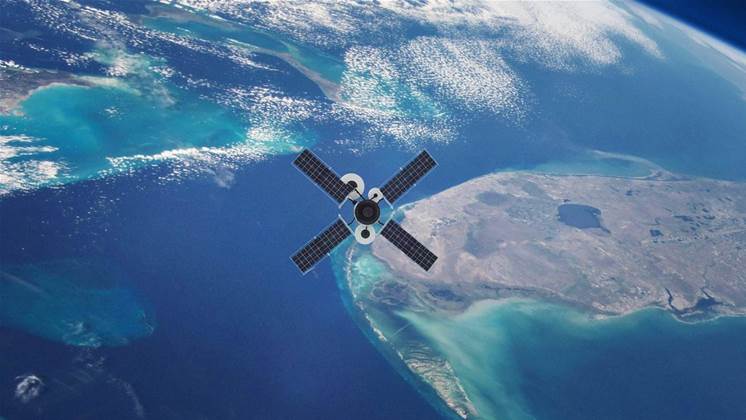Gone are the days when the highly targeted output of spy satellites orbiting the Earth was solely the domain of superpowers and major corporations allowed to be in the know.

These days everyone has a little bird to tell them what the neighbours are up to, but if you want to do some surveillance from space on a budget, well, there's an app for that.
In what must rate as the most curious market announcement of the week, Kleos Space, an ASX-listed startup operating out of Luxembourg, is offering punters a chance at spotting covert maritime activity through data provided by its fleet of ‘Scouting Mission’ nano-satellites.
Not that Australia has a thing about unexpected boat arrivals and knowing where vessels of interest are at a given time.
Of course there are some boats that maritime insurers would rather not have stopped, regardless of domestic politics.
To that end Kleos this week announced it's taking pre-orders on three different packages through its Radio Frequency Reconnaissance data provider, with its Scouting Mission satellites scanning for VHF radio activity.
The satellites orbit in formation, allowing the company to triangulate the location of the radio source.
“If those radio transmissions are coming from an area of the ocean which isn’t showing any legitimate activity, then we know we have identified new and previously unknown activity,” the company’s pitch to investors says.
“Thus locating dark, unseen, obscured, obfuscated, covert maritime activity which may indicate activities such as illegal fishing, smuggling and trafficking.”
Kleos then plans to sell that data and geospatial intelligence as a service, with an eye on the defence, regulatory and commercial fishing and shipping sectors.
The initial fleet will consist of four nano-satellites built by Danish firm GOMspace which are expected to launch in the middle of this year. Further satellites are planned to bring the overall constellation to 20, increasing the amount of data and the frequency with which it’s captured.
The launch itself will be handled by US-based Rocket Lab, which last year drew the ire of astronomers for launching an “artificial star” - a non-functioning, highly-reflective satellite - into low earth orbit.
While the sight of bright artificial star racing across the night sky was appreciated by amateurs, the wider space community labelled it space junk that messed with space observation data and wrecked long-exposure photographs needed to glimpse faint celestial bodies.
For those of you about to Google Kleos, the ‘About’ page the search engine links to throws up a 404 error in the form of a game of Space Invaders.
Better to head here instead if you actually want to know more.


.png&h=140&w=231&c=1&s=0)
_(28).jpg&h=140&w=231&c=1&s=0)

_(23).jpg&h=140&w=231&c=1&s=0)





 iTnews Executive Retreat - Security Leaders Edition
iTnews Executive Retreat - Security Leaders Edition
 iTnews Benchmark Awards 2026
iTnews Benchmark Awards 2026
 iTnews Cloud Covered Breakfast Summit
iTnews Cloud Covered Breakfast Summit
 The 2026 iAwards
The 2026 iAwards












_(1).jpg&h=140&w=231&c=1&s=0)



